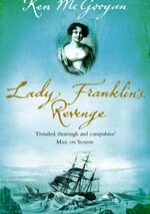In 701 B.C. the Assyrian empire was in its ascendancy. It had already vanquished the kingdom of Israel to the north including the capital at Samaria. It then prepared an assault on Judah and its capital at Jerusalem.
But in one of those significant events that changes the course of world history, Assyria was repelled. Jerusalem was saved until 586 B.C. when the Babylonians sacked the city, forcing its leadership class into exile.
Henry Aubin, in a major feat of scholarship, determines that Jerusalem was aided by a Kushite army from Africa which had marched northeast from the Nile valley. While the Bible attributes the Assyrian retreat to an angel and secular commentators cite pestilence, Aubin, in a meticulously documented work, demonstrates that an alliance with the African nation of Kush bolstered Jerusalem’s defences.
Kush, also known as Nubia, was located in what is now southern Egypt and northern Sudan. A monarchy that existed for more than 1000 years, from 900 B.C. to A.D. 350, Kushites held sway over Egypt from 712 B.C. to about 660 B.C. Of Egypt’s 31 dynasties, this, the 25th Dynasty, is the only one that all scholars agree, was black.
The commander of the Kushite expeditionary force was Taharqa (or as the Bible calls him Tirhakah). This Kushite prince, who had his own interests in halting Assyrian expansion, likely caught the aggressors by surprise as they prepared their siege of Jerusalem.
Aubin offers a thrilling military history and a stirring political analysis of the ancient world. He also sees the event as influential over the centuries.
The Kushite rescue of the Hebrew kingdom of Judah enabled the fragile, war-ravaged state to endure, to nurse itself back to economic and demographic health, and allowed the Hebrew religion, Yahwism, to evolve within the next several centuries into Judaism. Thus emerged the monotheistic trunk supporting Christianity and Islam.

“His biography is as detailed, thorough, and compulsive as Jane Franklin herself might have demanded.â€
The Mail on Sunday (London) “…an exhaustive and scrupulously researched biography.â€
Sara Wheeler
Times of London “McGoogan’s biography of Lady Franklin is both a detailed study of an extraordinary woman and an adventure story almost too fantastic to be true.â€
Glasgow Herald “An unforgettable book.â€
Edmonton Journal “elegant, lucid and impassioned writing…pack[s] the power of the best novels.”Kathleen Winter, author of AnnabelAwards:
Pierre Berton Award University of British Columbia President’s Medal
HarperCollins Canada 2005
Bantam United Kingdom 2006
Lady Franklin’s Revenge
The true story of a woman born in the time of Jane Austen who strode the world stage and influenced the course of Arctic exploration. Born into a wealthy London family in 1791, Jane Griffin was denied the opportunities available to men of her class. Yet she became a world traveler, ranging far off the beaten path to explore Russia, Greece, the Holy Land and North Africa. She and her husband Sir John Franklin presided over Tasmania, and at the age of 70, she circumnavigated the globe in rough sailing ships. At age 36, Jane married the famous but hapless explorer John Franklin. She helped him seize the leadership of a Royal Navy expedition to find the fabled shortcut to the China across the top of North America. After Franklin disappeared in the Arctic ice, Jane dispatched seven doomed expeditions to find him. In 1854, when explorer John Rae returned to England with news that Franklin and his crew had perished and at the end some had resorted to cannibalism, Jane enlisted Charles Dickens to repudiate him. Though she failed to rescue Franklin, she contributed more to the discovery of the North than anyone else.